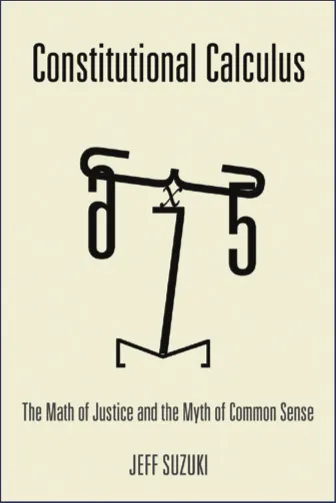Review of Constitutional Calculus by Jeff Suzuki
Saturday August 01, 2015



For Mathematical Reviews:
Jeff Suzuki, in Constitutional Calculus, presents an entertaining and insightful approach to the mathematics that underlies the American system of government. The book is neatly organized, breaking down the United States Constitution by article, section, and amendment. Within each piece, Suzuki reviews the mathematical principles that went into the underlying framework.
Suzuki generally tends to focus on the areas of core interest to political economists and decision theorists. The book provides several different approaches to describe how the House of Representatives is apportioned and elected. This includes the problem of counting the census and the well-known Alabama paradox, where adding a seat to the House reduces the number allotted to one state. Suzuki also covers the the Bill of Rights, specifically those focusing on crime, justice, and jurisprudence. For instance, the author looks at why 12 may or may not be the right number of members for a jury as well as the statistical validity of New York’s controversial stop-and-frisk policy. Other sections address statistical applications of legal principles in other areas of jurisprudence.
One area this text is lacking is in the evaluation of some more arbitrary decisions within the Constitution. For instance, there is little discussion of the three-fifths compromise and how it may have affected census counts. There is also no discussion of how other cutoffs, such as the voting age of 18, affect the implementation of American government
In many cases, Suzuki offers mathematical alternatives to the approaches the framers adopted. Some of these were known, and likely known to the framers. Others have only become known more recently. It would be easy to become overly idealistic or preachy when presenting alternatives due to the political implications. Suzuki generally avoids that phenomenon and presents alternatives, both positive and negative, in a straightforward and approachable manner.